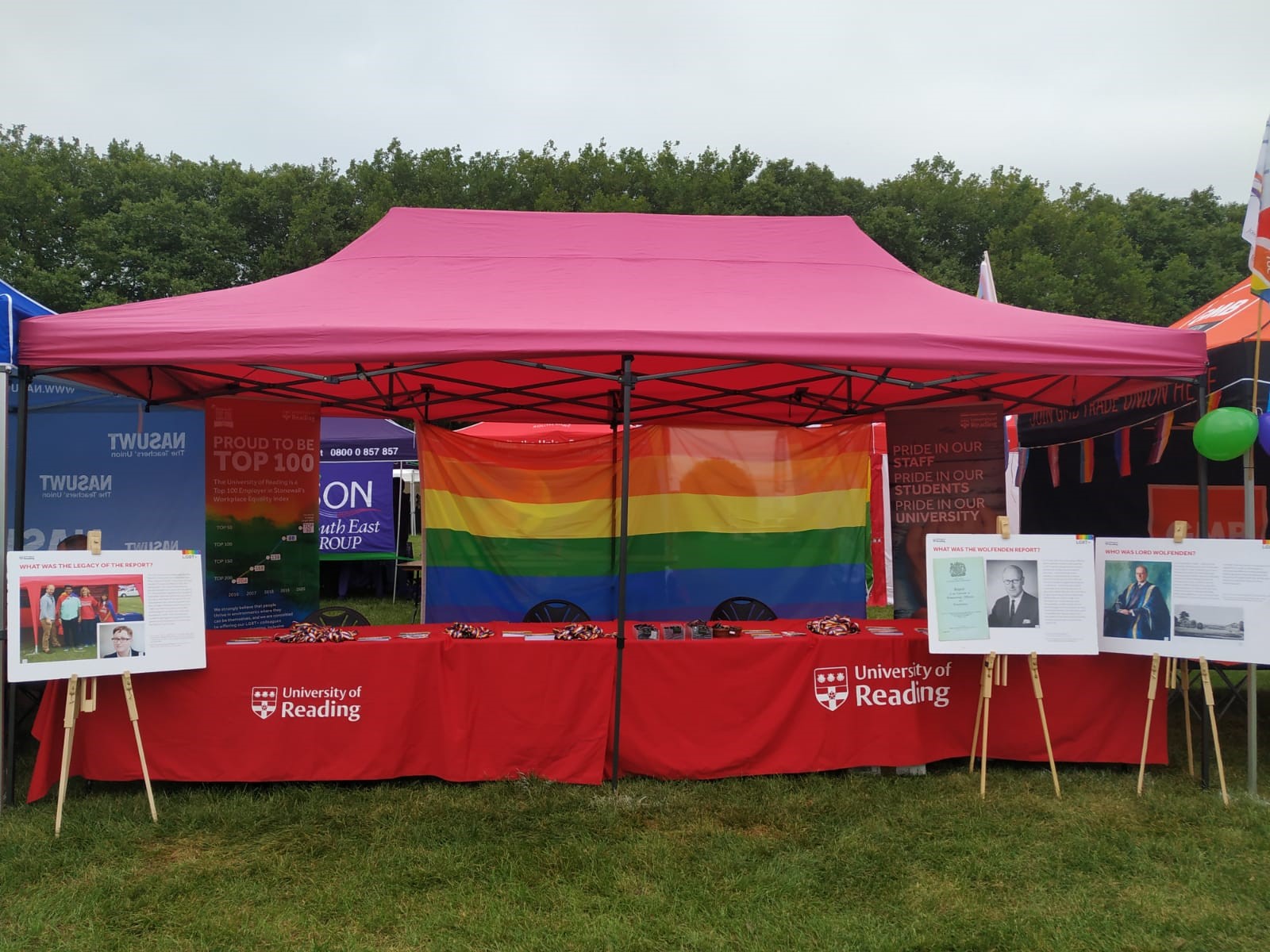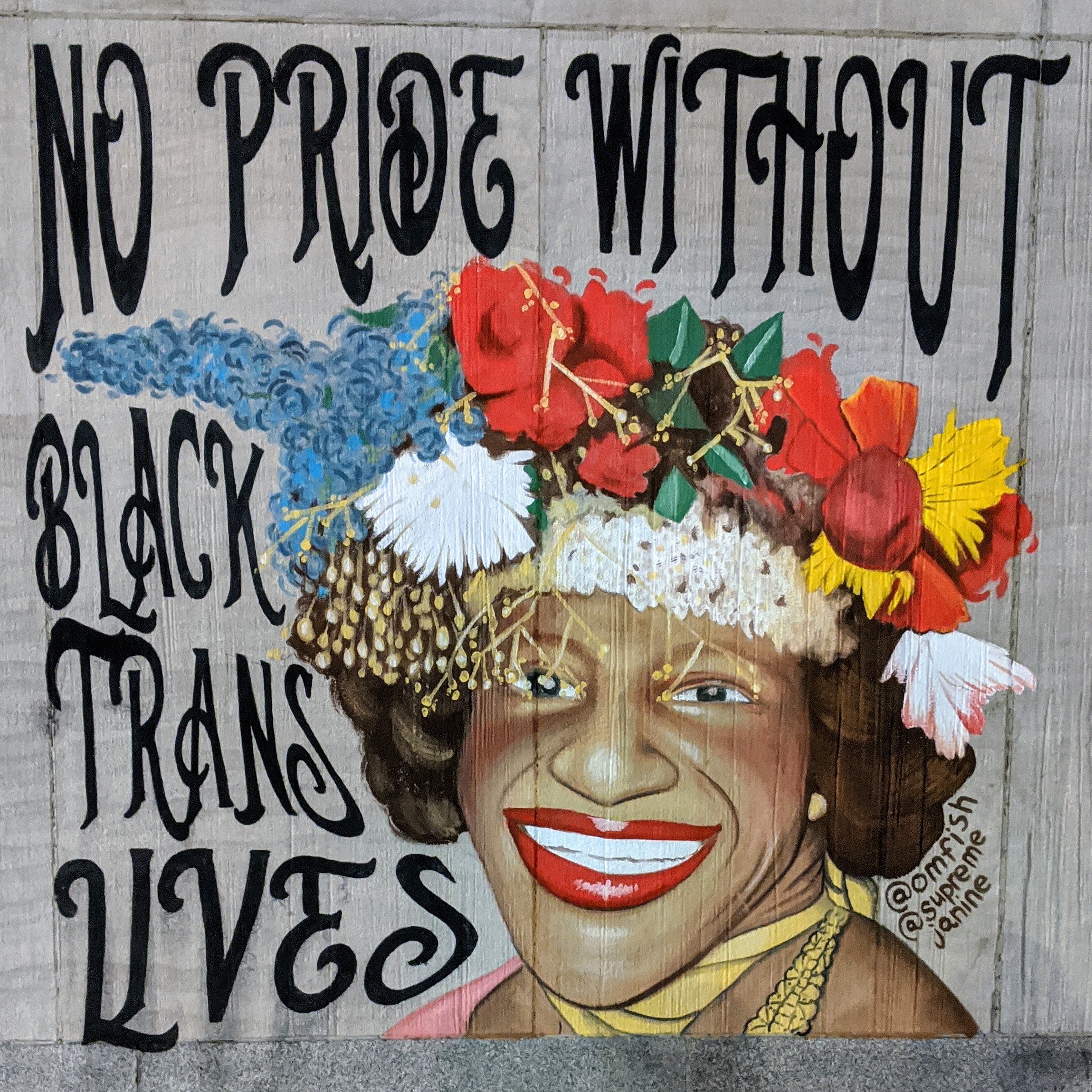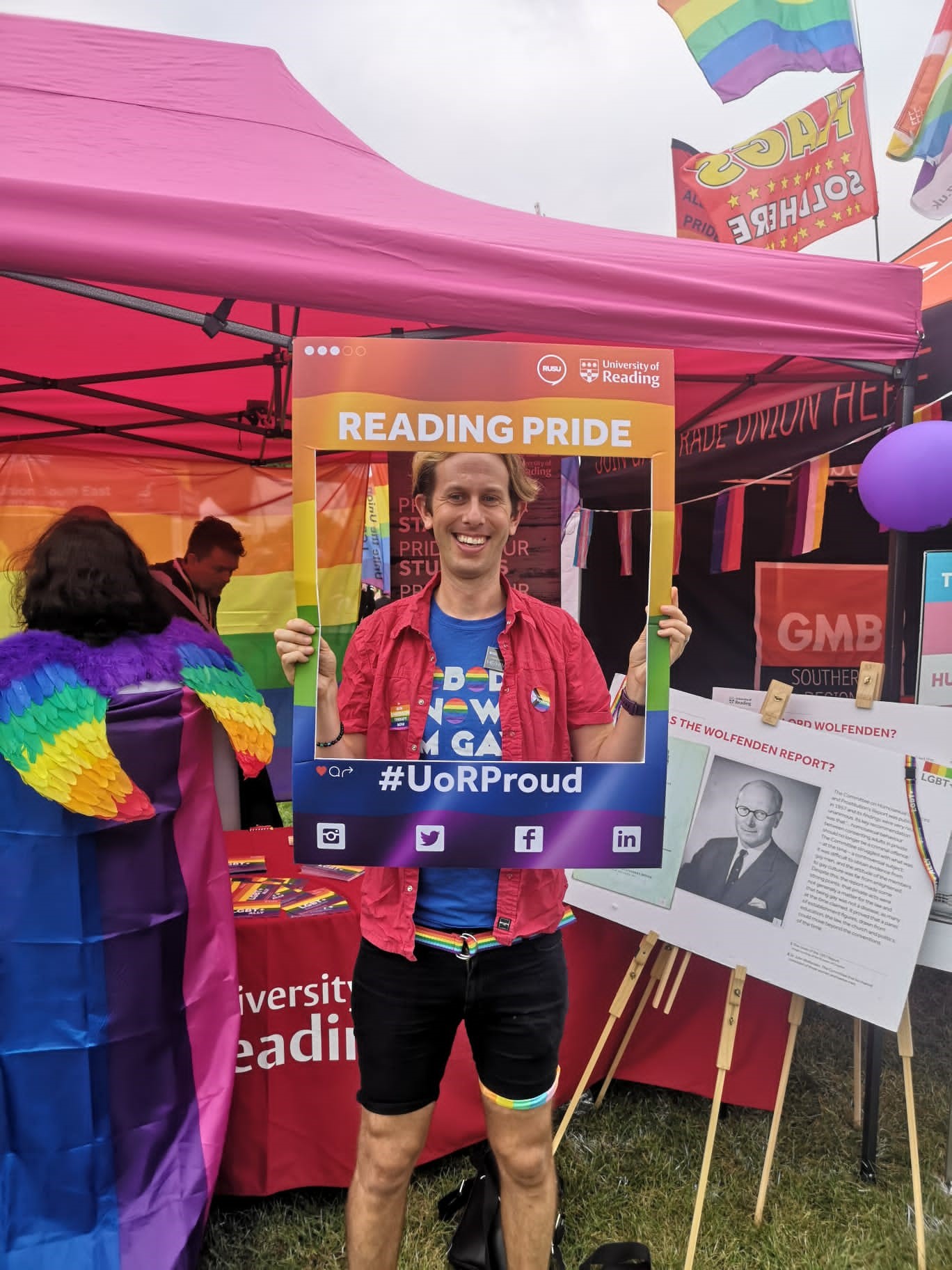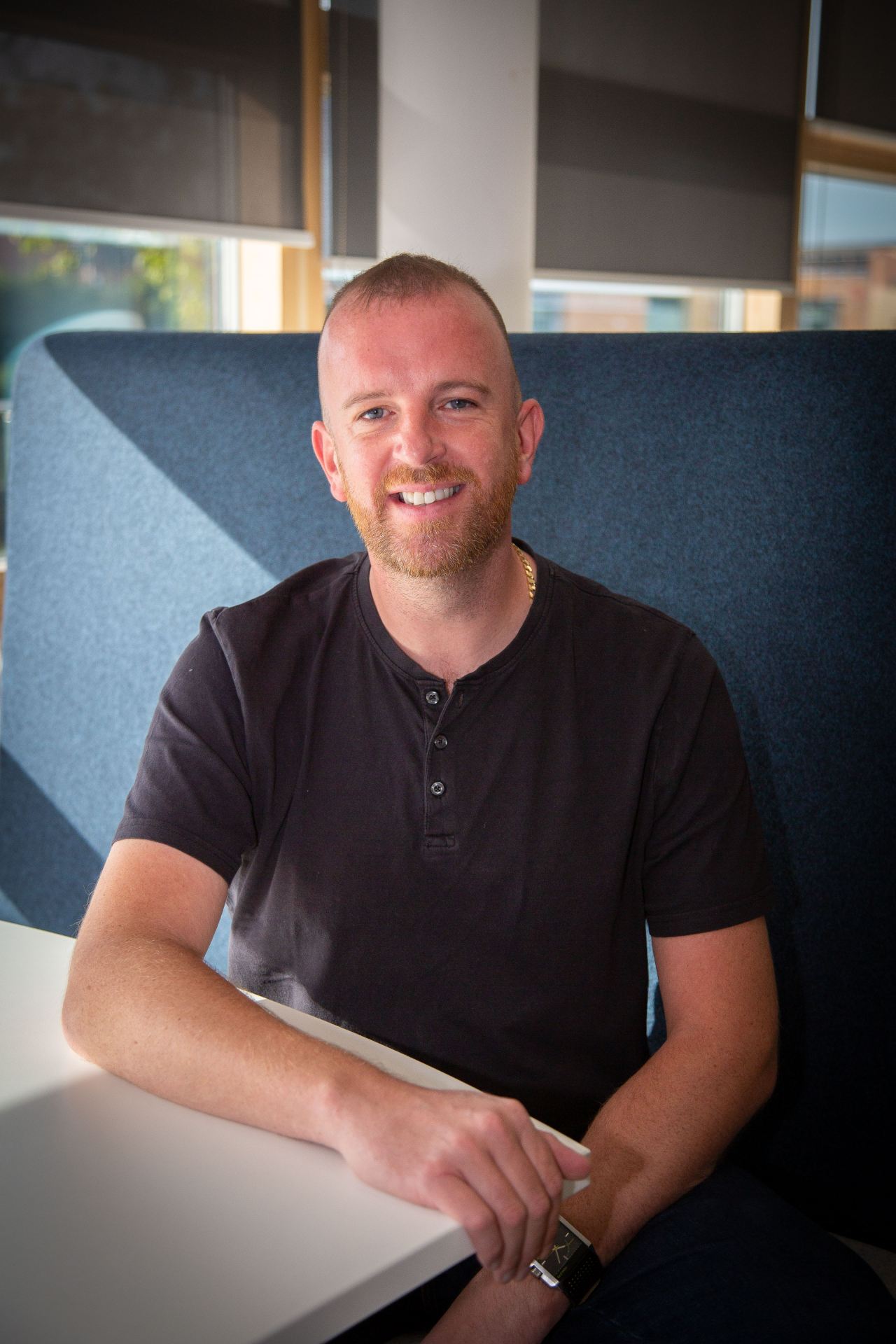Saturday 4th September 2021, King’s Meadow, Reading
An article written with collaborative input from, and with special thanks to:
Abi Flach, Al Laville, Aleiah Potter, Alice Mpofu Coles, Amrit Saggu, Amy Sheffield, Becky Kite, Carol Fuller, Clare Hallcup, Eva van Herel, Florian Roithmayr, Gordon Short, Hatty Taylor, Javier Amezcua, Jessica Tyers, Jude Brindley, Kat Bicknell, Lucy Guest, Mark McClemont, Martina Mabale De Burgos, Mathew Haine, Susan Thornton, Nozomi Tolworthy, Parveen Yaqoob, Peter Scarfe, Rachel Helsby, Ruvi Ziegler, Sadie Bartholomew, Saif Maher, Sinead O Flynn and Sheldon Allen.
Love Unites!
We were so excited to hear that Reading Pride – Love Unites Festival was back on in person this year and it did not disappoint! We had our usual stand in the festival’s marketplace where we could engage with the community.
We talked about life on campus, working at the University, the student experience at the University. We also talked about inclusive recruitment, and ways one could join the University, as staff or prospective students. We celebrated the current and ever-expanding support for LGBT+ students and staff at the University, including RUSU’s LGBT+ student society, the LGBT+ Staff Network and much more!


Free Handouts for All!
We engaged the crowds with our handouts; rainbow lanyards, progress flag/UoR stickers. A particular favourite was the pronoun badges we were giving out. In 2019 we launched four styles of pronoun badges: He/Him, She/Her, They/Them, and a badge with a blank box for custom pronouns. These were a huge, and unique hit at the festival and were very welcome amongst the attendees.
We initially wrote about the importance of pronouns in our blog piece back in February 2019 – Pronoun Badges at the University of Reading. We want our trans and non-binary colleagues, students and members of the wider community to know, as well as our cisgender colleagues, students, and members of the wider community that we not only support but encourage their expression of their gender identity. We want to recognise and respect the entire spectrum of gender and do all that we can to represent and celebrate the diverse community of identities that we have at Reading. You can read more about the importance of pronouns here.

Digital Takeover

Martina Mabale De Burgos, Student Outcomes Coordinator and University of Reading Community Champion and Sheldon Allen, Law Student and UoR Community Champion, did an awesome job of niversity of Reading’s social media channels! Starting at the parade, they made their way through the town with the hundreds of others in the Parade. They made sure everyone who couldn’t be there felt included in the day by sharing photographs and posts throughout the day. We used the University’s iconic social media frame, which is being modelled in the image above by Parveen Yaqoob, who is the LGBT+ champion on the University’s Executive Board, and Sheldon.

Celebrating the Wolfenden Legacy
We had placards printed which told the story of Lord Wolfenden. In 1957, John Wolfenden released a report which proposed that ‘homosexual intercourse between consenting adults should be decriminalized’. The uproar it produced in politics, the press and public discourse eventually helped pave the way for LGBT+ rights in the UK.
Lord Wolfenden was Vice Chancellor of the University of Reading between 1950–1964 and future Director of the British Museum, was chosen to head the Departmental Committee on Homosexual Offences and Prostitution in 1954.
We mark this important moment in history annually with the Wolfenden Lecture.
This year the Wolfenden Lecture was presented by special guest, Hafsa Qureshi, Stonewall Bi Role Model of the Year 2019.
The event this year was named ‘Why We Are Not All Equal’;
As a modern society, we treat the problem of inequality as a thing of the past. This lecture aimed to dispel the notion that equality has been achieved. We looked at the ways society has adapted the way we discriminate against one another, and what we can do to oppose this.
Pride as a Protest

We were very happy this year to see the traditional roots of LGBT+ Pride were given consideration, with a ‘grassroots protest’ art instillation at the Main entrance to the festival. LGBT+ Pride is well known as a celebration of the diverse identities and people within the LGBT+ community, but it is also a protest.

The Pride celebrations that we know and love all over the world today were born in New York City. Following the Stonewall riots, (also known as the Stonewall uprising or the Stonewall rebellion) which were a series of spontaneous demonstrations by members of the LGBT+ community in response to a police raid that began in the early morning hours of June 28, 1969 at the Stonewall Inn.
The first Pride March, on 28th June 1970 was called the Christopher Street Liberation Day March (which is the name of the road the Stonewall Inn is on) and the event had both an element of celebration and protest.

We had a truly brilliant time at the Love Unites festival. We are also aware we can always improve. Some of the ideas we have had for next year already include things such as:
- A UoR flag flying high from the stall, so people can find us easily from a distance,
- Changing or adapting our hand-outs so that they are environmentally friendly,
- A ‘photo booth’ with our amazing frame (as modelled by Ruvi in the image above) including the famous disco ball from the Art Department.
If you have any comments, feedback or any exciting ideas for next year, we would love to hear from you. Please send us an email at diversity@reading.ac.uk with your comments.
 Drew Dalton (He/Him) is a Senior Lecturer in Sociology and the Programme Leader for the MSc Inequality and Society at the University of Sunderland. Drew has significant industry experience in the Third Sector, human rights, HIV and AIDS, and in education. He has been Chair of several organisations including those that have highlighted LGBTQI+ histories, working with people living with HIV, and those that support LGBTQI+ Muslims. Currently he is the Founder and Chair of ReportOUT, an award-winning global human rights charity for sexual and gender minorities across the globe. Drew is a proud bisexual man.
Drew Dalton (He/Him) is a Senior Lecturer in Sociology and the Programme Leader for the MSc Inequality and Society at the University of Sunderland. Drew has significant industry experience in the Third Sector, human rights, HIV and AIDS, and in education. He has been Chair of several organisations including those that have highlighted LGBTQI+ histories, working with people living with HIV, and those that support LGBTQI+ Muslims. Currently he is the Founder and Chair of ReportOUT, an award-winning global human rights charity for sexual and gender minorities across the globe. Drew is a proud bisexual man.








